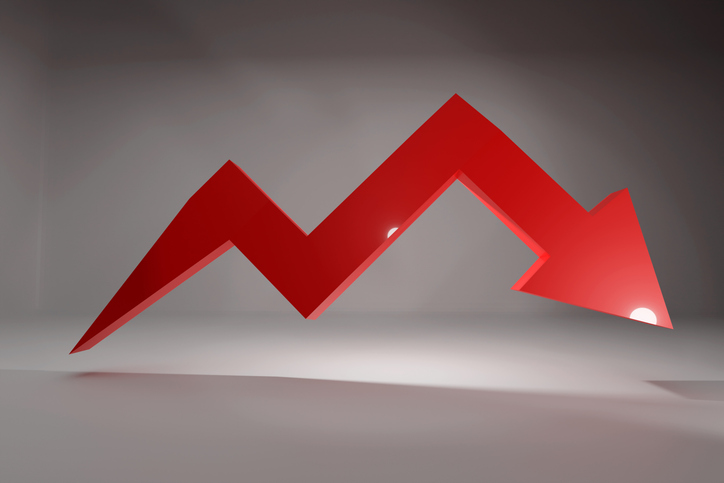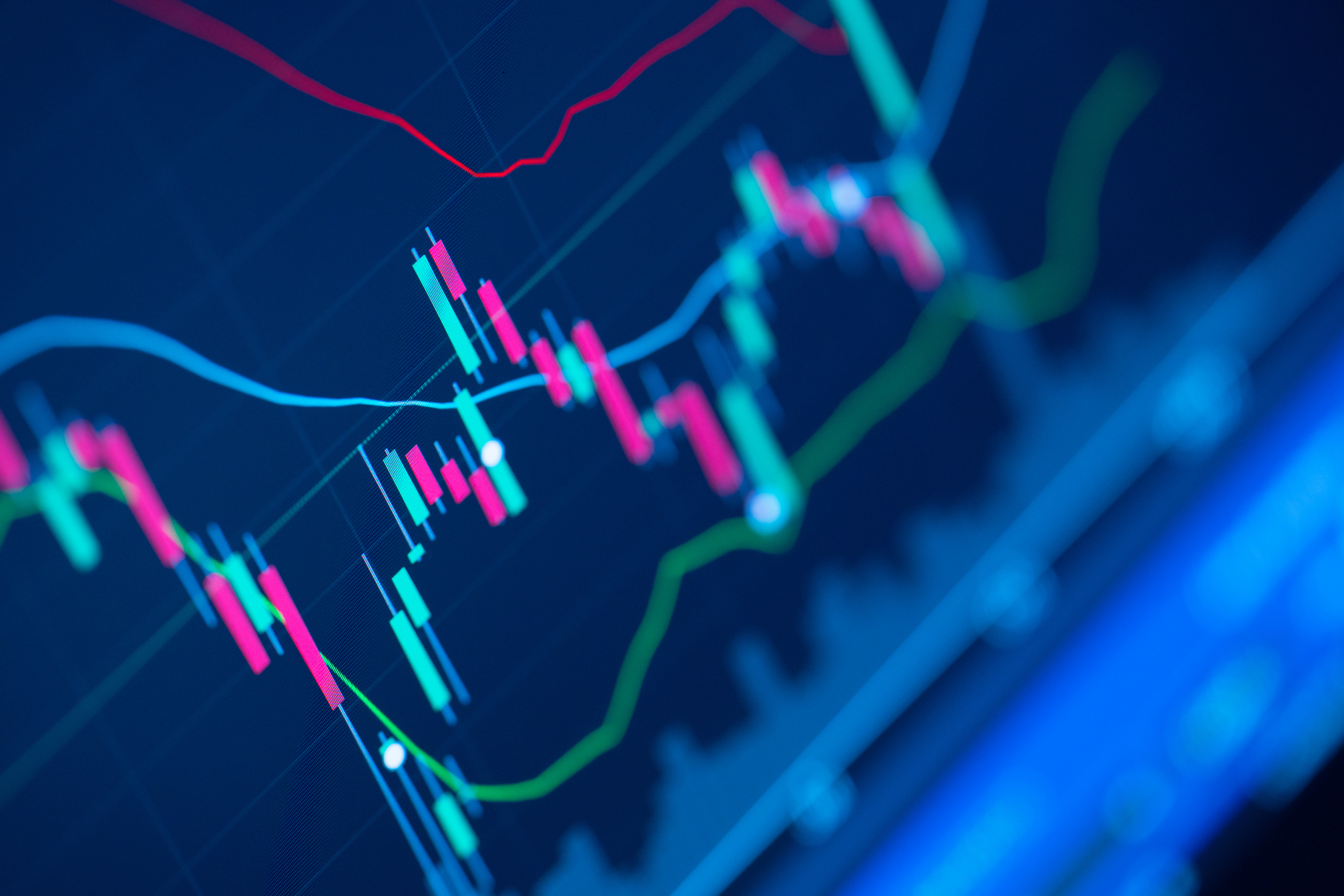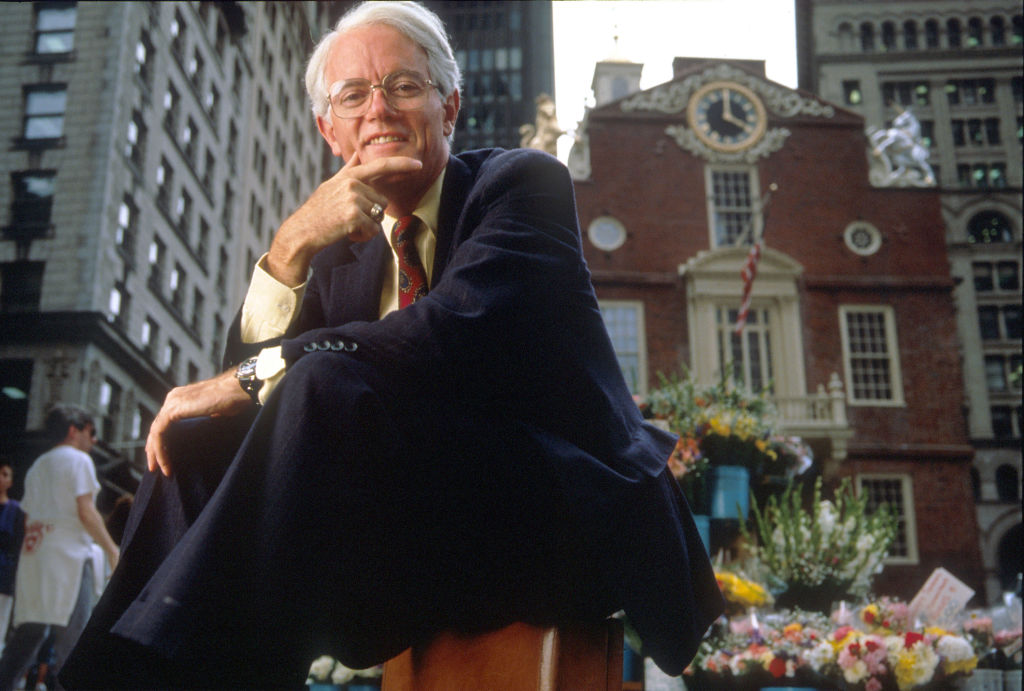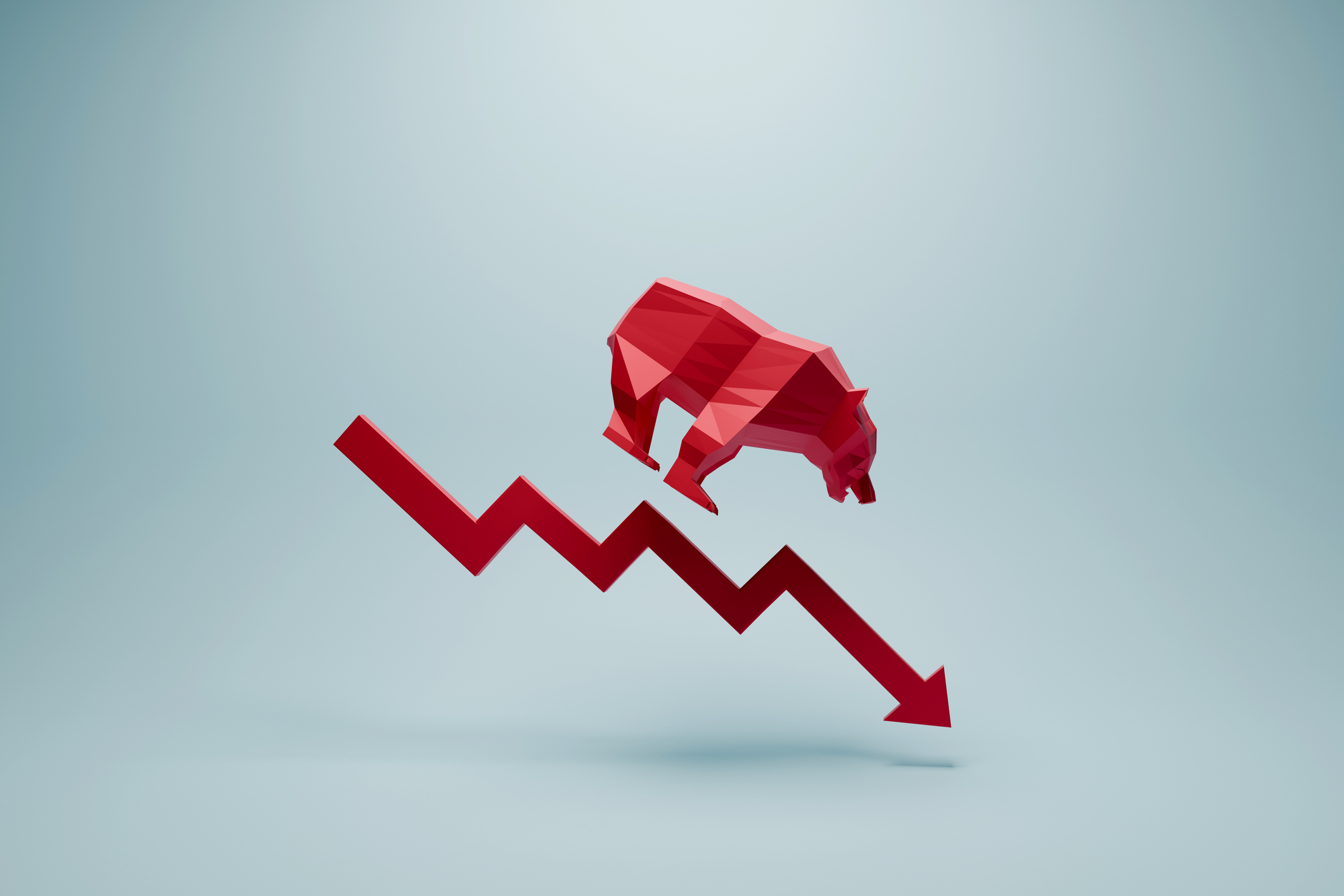Selected American Shares Hanging Tough
This Kiplinger 25 fund is having a subpar year, but it still is one of the best you can buy.

Profit and prosper with the best of Kiplinger's advice on investing, taxes, retirement, personal finance and much more. Delivered daily. Enter your email in the box and click Sign Me Up.
You are now subscribed
Your newsletter sign-up was successful
Want to add more newsletters?

Delivered daily
Kiplinger Today
Profit and prosper with the best of Kiplinger's advice on investing, taxes, retirement, personal finance and much more delivered daily. Smart money moves start here.

Sent five days a week
Kiplinger A Step Ahead
Get practical help to make better financial decisions in your everyday life, from spending to savings on top deals.

Delivered daily
Kiplinger Closing Bell
Get today's biggest financial and investing headlines delivered to your inbox every day the U.S. stock market is open.

Sent twice a week
Kiplinger Adviser Intel
Financial pros across the country share best practices and fresh tactics to preserve and grow your wealth.

Delivered weekly
Kiplinger Tax Tips
Trim your federal and state tax bills with practical tax-planning and tax-cutting strategies.

Sent twice a week
Kiplinger Retirement Tips
Your twice-a-week guide to planning and enjoying a financially secure and richly rewarding retirement

Sent bimonthly.
Kiplinger Adviser Angle
Insights for advisers, wealth managers and other financial professionals.

Sent twice a week
Kiplinger Investing Weekly
Your twice-a-week roundup of promising stocks, funds, companies and industries you should consider, ones you should avoid, and why.

Sent weekly for six weeks
Kiplinger Invest for Retirement
Your step-by-step six-part series on how to invest for retirement, from devising a successful strategy to exactly which investments to choose.
The naysayers have been waiting years for Selected American Shares to encounter rough seas in the financial stocks that its managers love so much. The critics have gotten their wish this year, but so far Selected is hanging remarkably tough.
Through November 16, the Dow Jones U.S. Financial Sector Index has fallen 15%. But Selected, with 40% of its assets in financials, has gained 4%. It trails Standard & Poor's 500-stock index by less than one percentage point.
"We're not proud of the year we're having," says co-manager Chris Davis. But given how badly financials are doing, perhaps he should be.
From just $107.88 $24.99 for Kiplinger Personal Finance
Become a smarter, better informed investor. Subscribe from just $107.88 $24.99, plus get up to 4 Special Issues

Sign up for Kiplinger’s Free Newsletters
Profit and prosper with the best of expert advice on investing, taxes, retirement, personal finance and more - straight to your e-mail.
Profit and prosper with the best of expert advice - straight to your e-mail.
Davis says the fund -- one of the Kiplinger 25 -- has held up so well largely because financial companies don't all move in lockstep. Take three Selected holdings: Wells Fargo (symbol WFC), the big San Francisco-based bank and financial-services provider; securities processor Bank of New York Mellon (BK) and auto insurer Progressive (PGR). Each has different potential vulnerabilities. Meanwhile, a mortgage lender, a homebuilder and a company, such as Home Depot, that is closely connected to housing activity, belong to different sectors but can be buffeted by similar forces.
While most financials have done poorly this year, Selected has been buoyed by a 13% stake in energy stocks, as well as such winners as Costco (COST), Berkshire Hathaway (BRK-A) and Microsoft (MSFT). "We've tried to structure this portfolio so it can take hits," Davis says.
Davis and his co-manager, Ken Feinberg, are, in my opinion, one of the great stockpicking teams of our time. If financials continue to implode, as many are predicting, Selected's performance will almost certainly deteriorate.
In other words, the short term looks dicey for this fund. But for long-term investors, Selected is probably the best no-load, large-company core fund you can buy.
Selected has been a marvel of consistency. Over the past ten years, it has returned an annualized 9%, beating the S&P 500 and the average large-blend fund by an average of two percentage points per year. Since 1999, the fund has trailed the S&P just once -- by 0.6 percentage point last year -- and has finished ahead of the average large-blend fund every year. Yet the fund is about 10% less volatile than the S&P.
Selected has two share classes, S (SLASX) and D (SLADX). Class D Shares boast lower expenses, just 0.58% annually, so buy this share class if you can. Some online brokers don't offer it.
Bolder investors should pick Clipper (CFIMX), which Davis and Feinberg began managing at the start of 2006. The fund is having a lousy year; it's down 1% and trails the S&P 500 by more than five percentage points.
With just 19 stocks (compared with 89 in Selected), it should be more volatile than Selected. But over the long run, it should perform better. After all, it contains Davis's and Feinberg's best ideas. Indeed, a concentrated portfolio run by the duo for multi-manager Master's Select Equity has beaten Selected.
Davis and Feinberg pick stocks one at a time. But they pay close attention to economic trends-and do a terrific job identifying them. I've gotten some of my best ideas from them.
What they see now:
- We're moving away from a consumer-led economy and toward an economy driven by spending on capital goods. That means more profits from infrastructure plays both in the U.S. and abroad -- be they companies that build jetliners, cranes, highways or locomotives. At the same time, the aging baby boomers are finally waking up to the fact that they have to save more and spend less, which will boost many financials -- eventually.
- Globalization will continue apace. "U.S. companies that do business globally will have a tailwind for the next ten years," says Davis. Ditto for many overseas companies. Selected has 16% of its assets in foreign stocks -- and that proportion has been growing steadily. Two-thirds of Davis's analysts have lived abroad and half speak foreign languages.
- Energy prices will stay high. At the same time, profit margins at many energy companies are being squeezed as the cost of finding new reserves climbs. "Earnings will peak before the price of oil peaks," says Davis.
- Inflation will increase over the next ten years. "I'd be wary of owning companies that would be hurt by inflation," Davis says. That may also be a reason to lighten up on long-term bonds.
- Health care costs will keep climbing, hurting some companies. The auto companies are Exhibit A. Says Davis: "I don't want to own a company that will be killed by health care costs."
Davis says that bubbles, far from being rare, are a regular part of the investment landscape. The difference is mainly in how big they are.
The ongoing deflation of the bubble in residential real estate is a huge one. But Davis says that it will affect only people, mainly speculators, who bought houses or condos in the past couple of years. He thinks prices will drop for some time, but homeowners who can afford their mortgages -- which is all but a handful -- will pay them, even as prices fall. Most are just watching paper profits evaporate. "Home values are roughly twice all mortgage debt," Davis says.
Does the housing debacle end in a recession and bear market? Says Davis: "A lot of high-grade companies are down 40% to 60% already. A lot of companies are in the teeth of a bear market."
Longer term, Davis is optimistic about stocks. Over the past seven years, the S&P has returned less than 3% annualized, even with dividends. It reminds Davis of the late 1970s, when there was widespread pessimism toward stocks. Meanwhile, valuations for "a lot of high-grade global companies" are extremely attractive. "It doesn't look like such an awful world," says Davis.
Steven T. Goldberg (bio) is an investment adviser and freelance writer.
Profit and prosper with the best of Kiplinger's advice on investing, taxes, retirement, personal finance and much more. Delivered daily. Enter your email in the box and click Sign Me Up.

-
 How Much It Costs to Host a Super Bowl Party in 2026
How Much It Costs to Host a Super Bowl Party in 2026Hosting a Super Bowl party in 2026 could cost you. Here's a breakdown of food, drink and entertainment costs — plus ways to save.
-
 3 Reasons to Use a 5-Year CD As You Approach Retirement
3 Reasons to Use a 5-Year CD As You Approach RetirementA five-year CD can help you reach other milestones as you approach retirement.
-
 Your Adult Kids Are Doing Fine. Is It Time To Spend Some of Their Inheritance?
Your Adult Kids Are Doing Fine. Is It Time To Spend Some of Their Inheritance?If your kids are successful, do they need an inheritance? Ask yourself these four questions before passing down another dollar.
-
 Stocks See First Back-to-Back Losses of 2026: Stock Market Today
Stocks See First Back-to-Back Losses of 2026: Stock Market TodayRising geopolitical worries and a continued sell off in financial stocks kept pressure on the main indexes on Wednesday.
-
 Stocks Swing in Volatile Session: Stock Market Today
Stocks Swing in Volatile Session: Stock Market TodayThe main indexes fell sharply in early trading on rising China tensions, but rebounded thanks to encouraging bank earnings.
-
 The Best Bank Stocks to Buy
The Best Bank Stocks to BuyBank stocks are part of the financial services sector and are a way to gain exposure to the broader economy. Here, we look at how you can find the best ones.
-
 Stock Market Today: Nasdaq Hits a New High as Nvidia Soars
Stock Market Today: Nasdaq Hits a New High as Nvidia SoarsA big day for Nvidia boosted the Nasdaq, but bank stocks created headwinds for the S&P 500.
-
 Stock Market Today: A Historic Quarter Closes on High Notes
Stock Market Today: A Historic Quarter Closes on High Notes"All's well that ends well" is one way to describe the second quarter of 2025, at least from a pure price-action perspective.
-
 We Are Peter Lynch: How to Invest in What You Know
We Are Peter Lynch: How to Invest in What You KnowTake a look around, go to a free stock market data website, and get to work.
-
 Stock Market Today: Uncertainty Proliferates: Dow Loses 1,014 Points
Stock Market Today: Uncertainty Proliferates: Dow Loses 1,014 PointsWeaker-than-expected consumer inflation data wasn't enough to stabilize sentiment during another volatile day for financial markets.
-
 Stock Market Today: Dow Rises 854 Points From Its Intraday Low
Stock Market Today: Dow Rises 854 Points From Its Intraday LowIf there's one thing markets hate, it's uncertainty. But uncertainty is all they're getting these days.